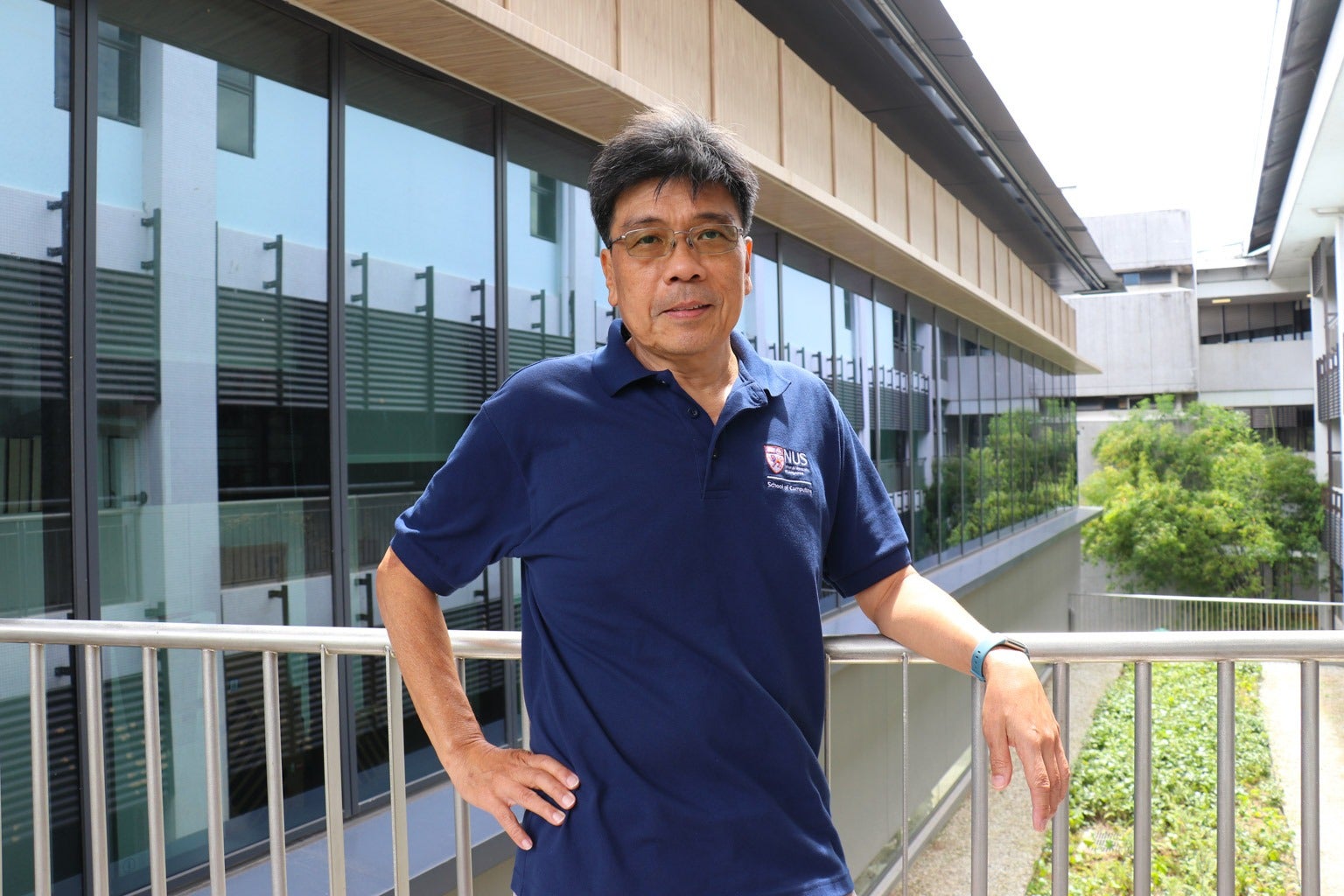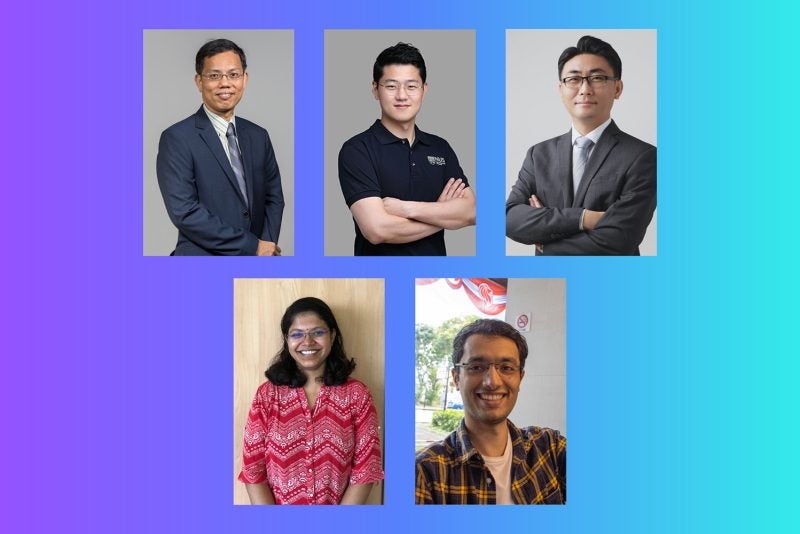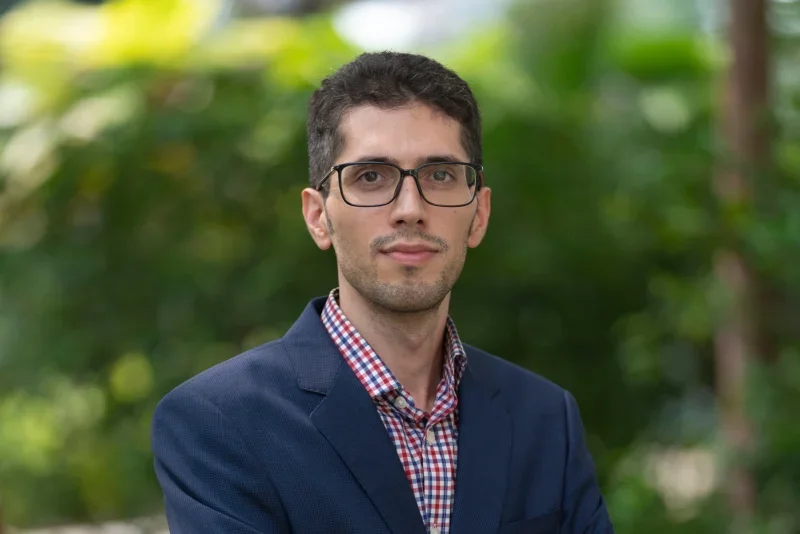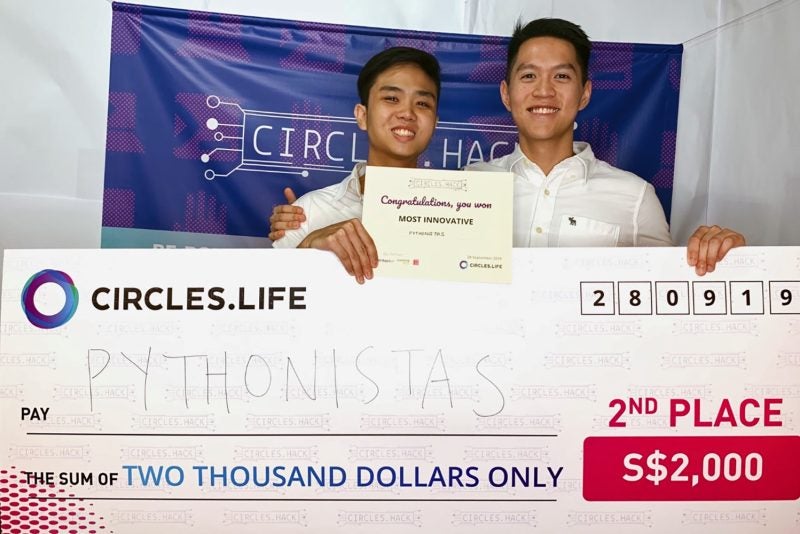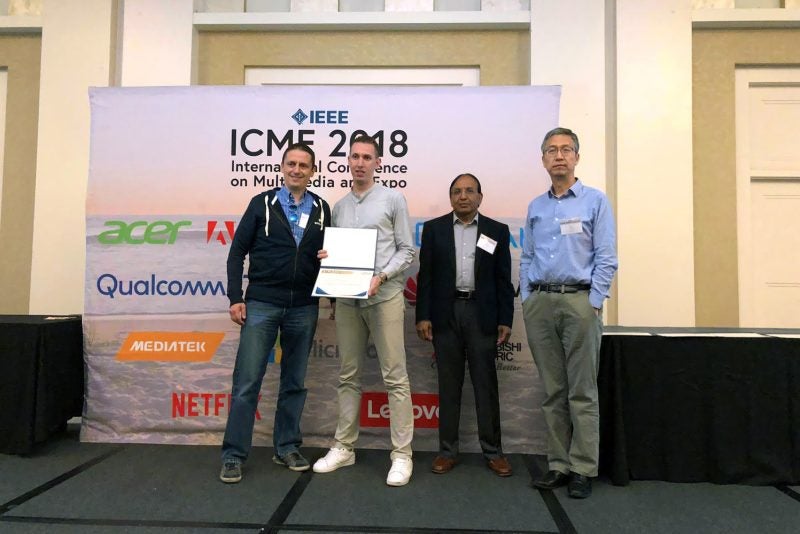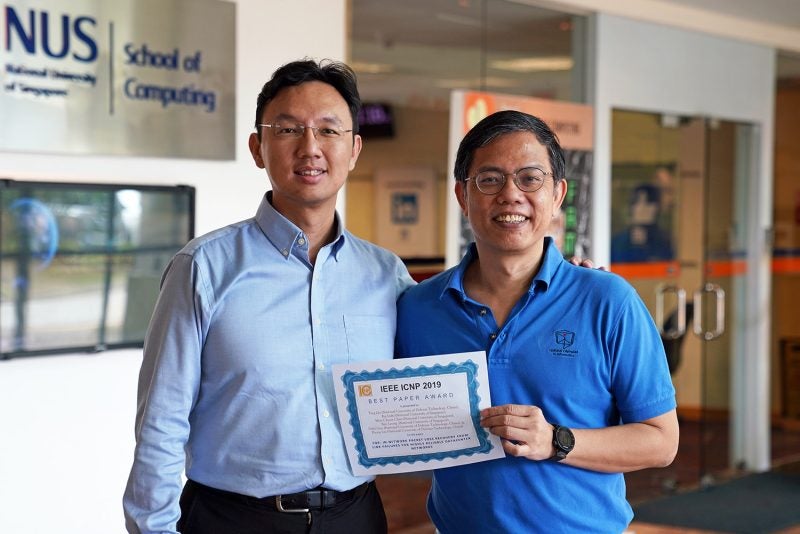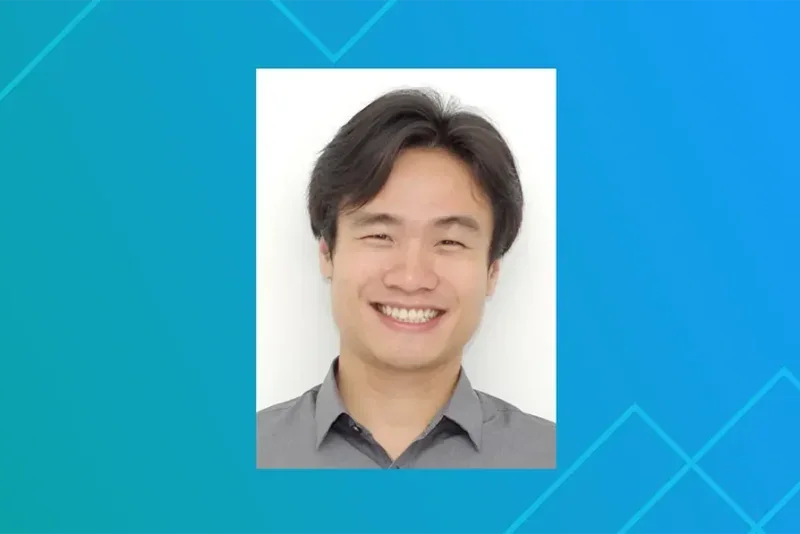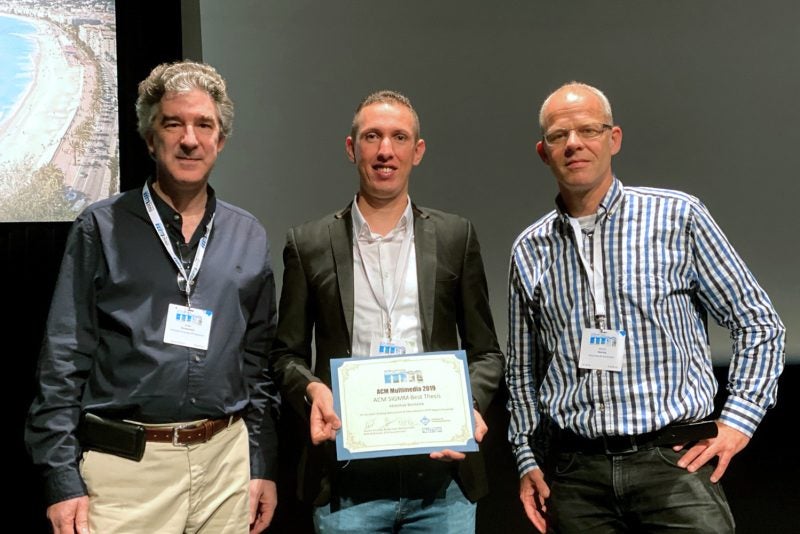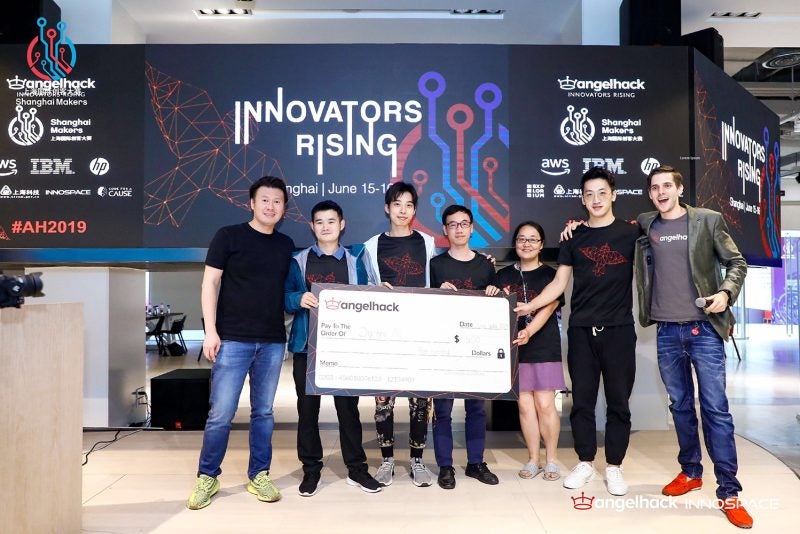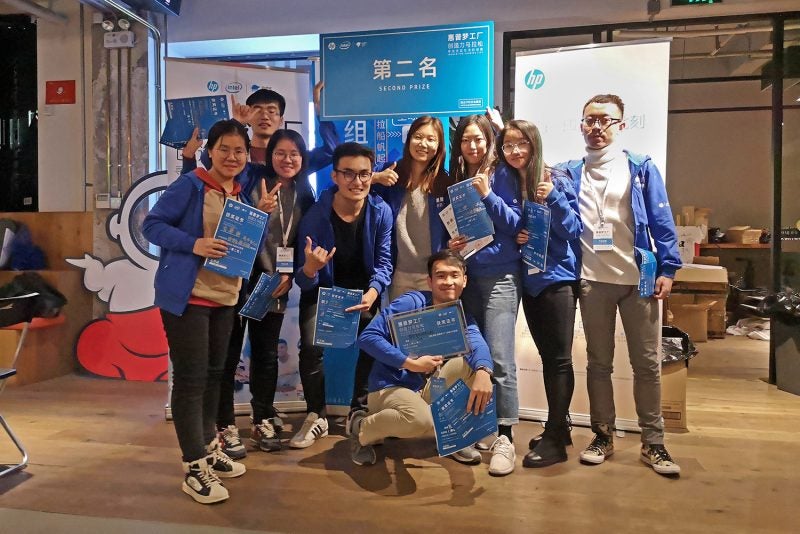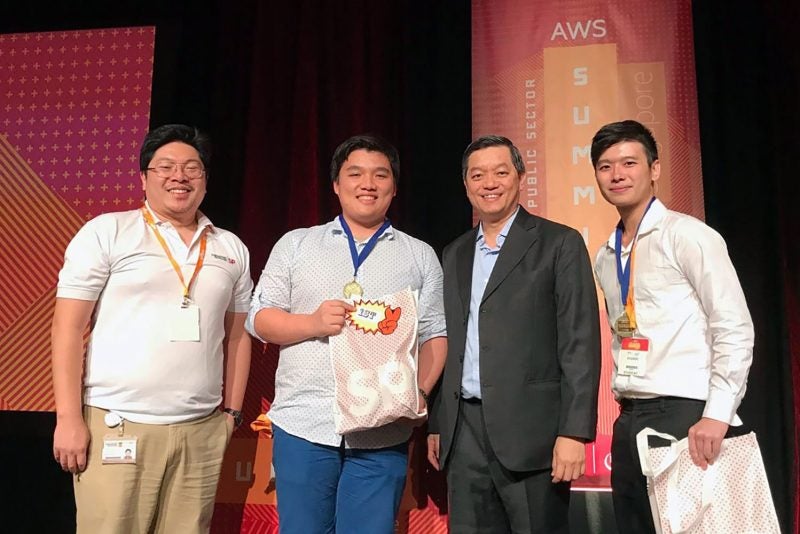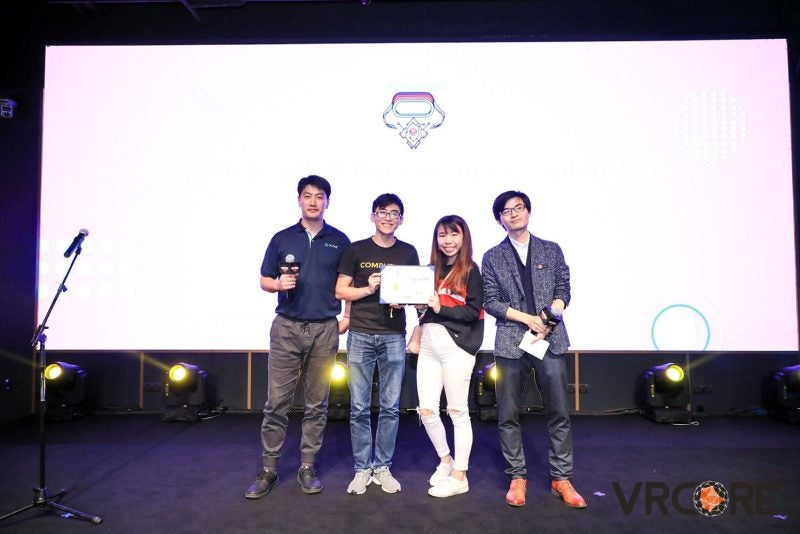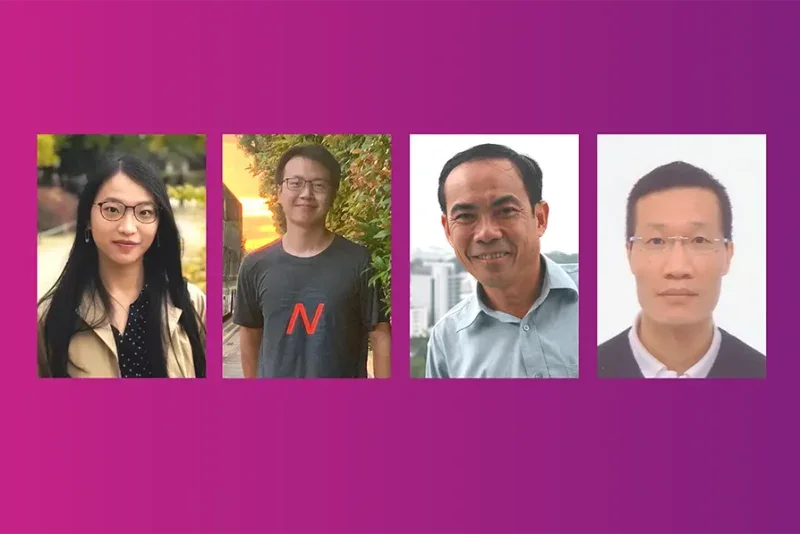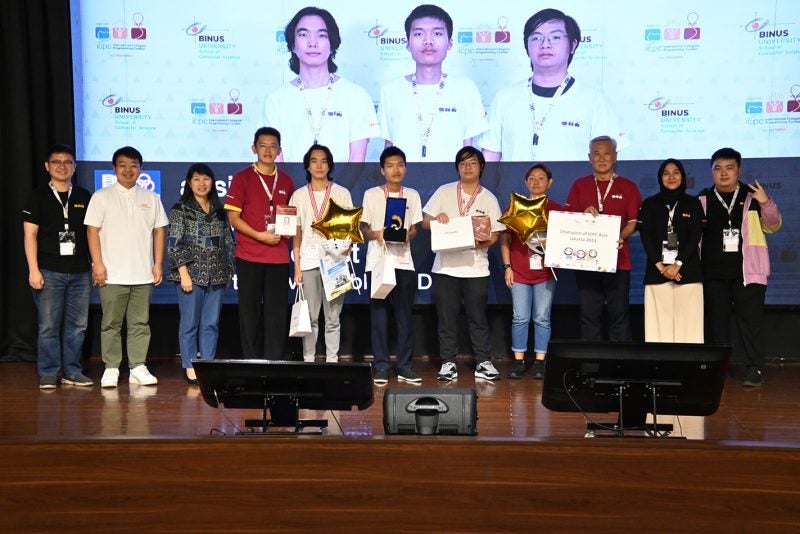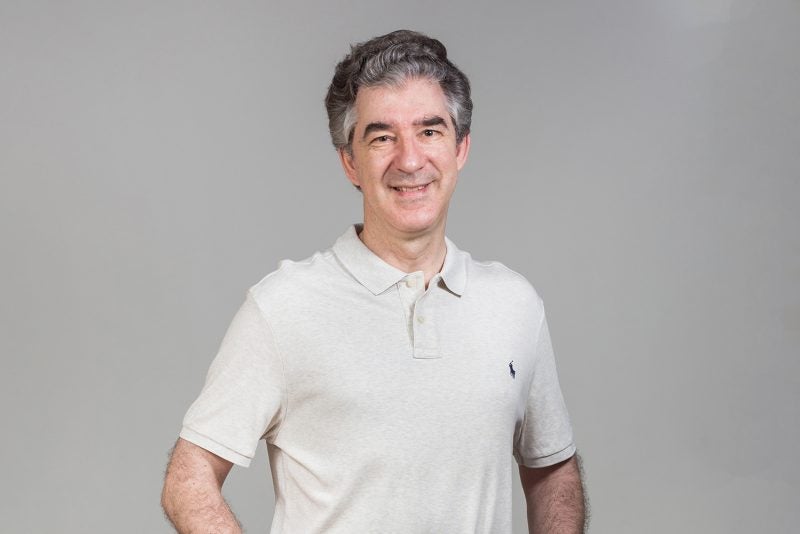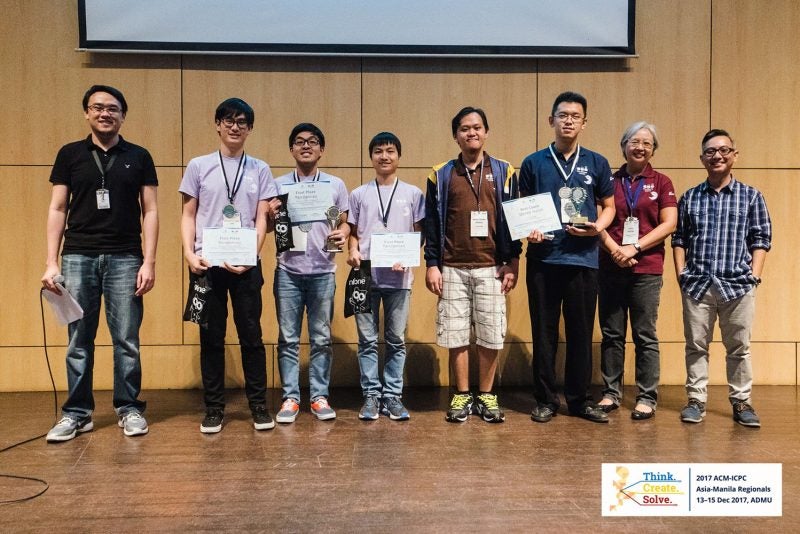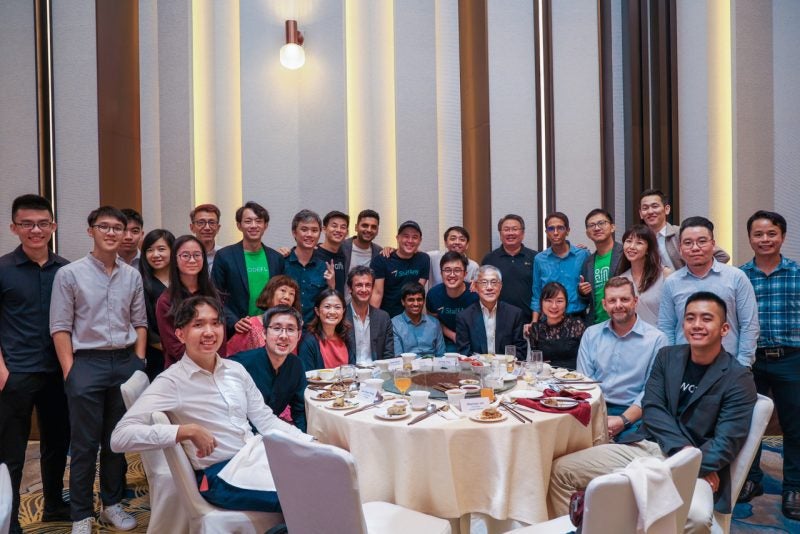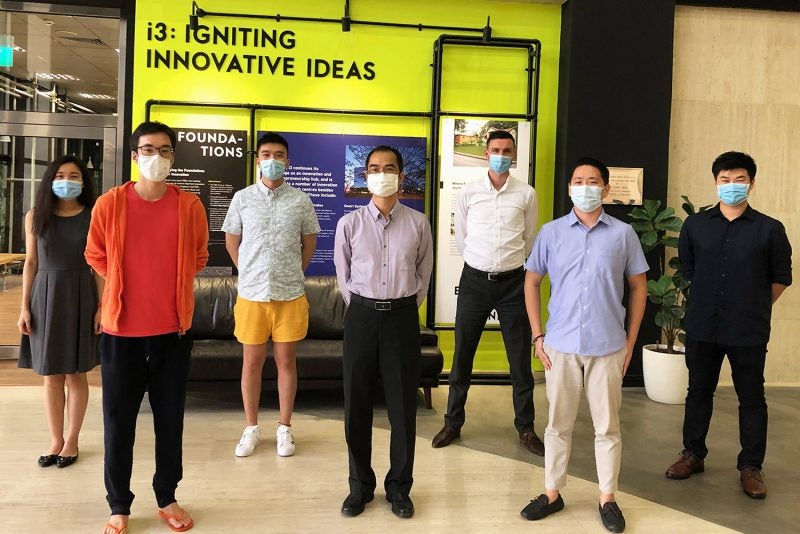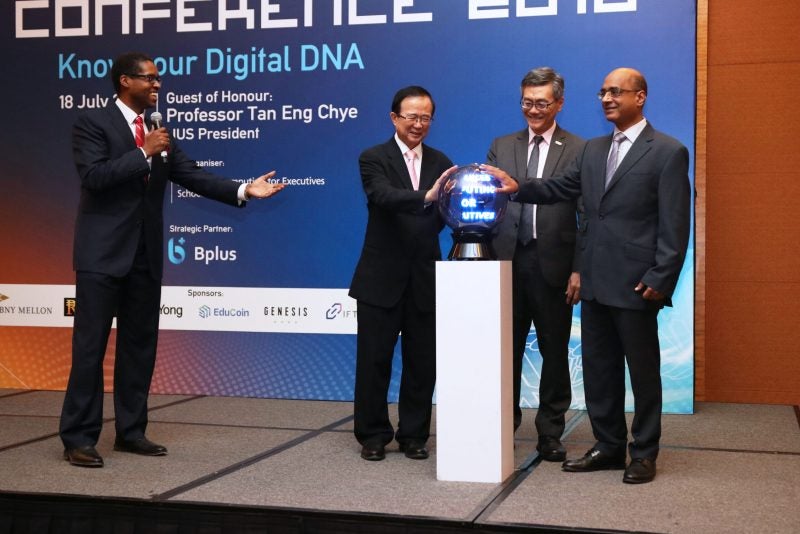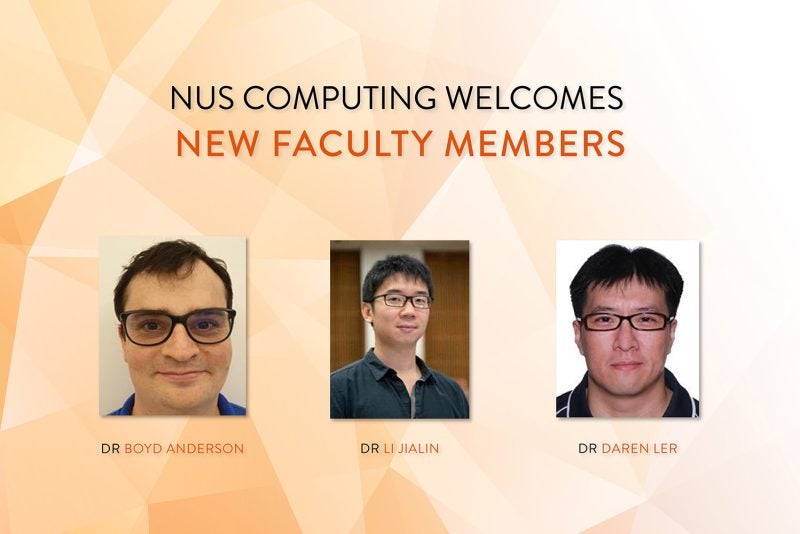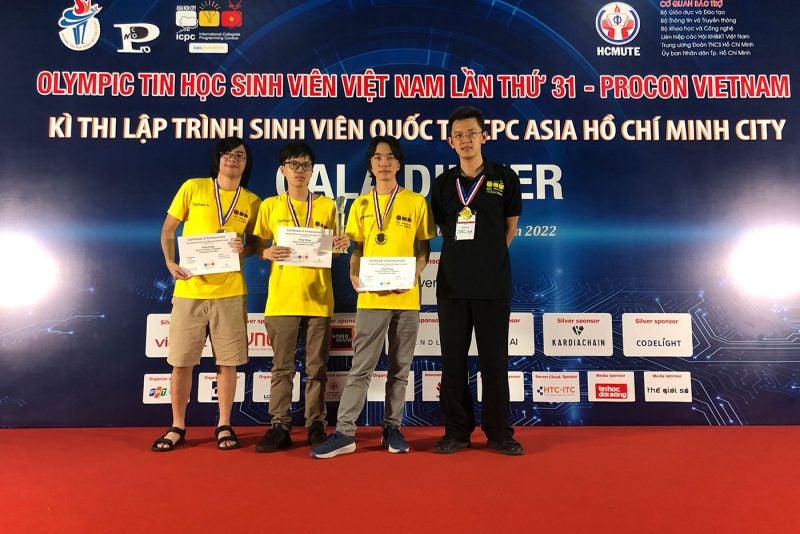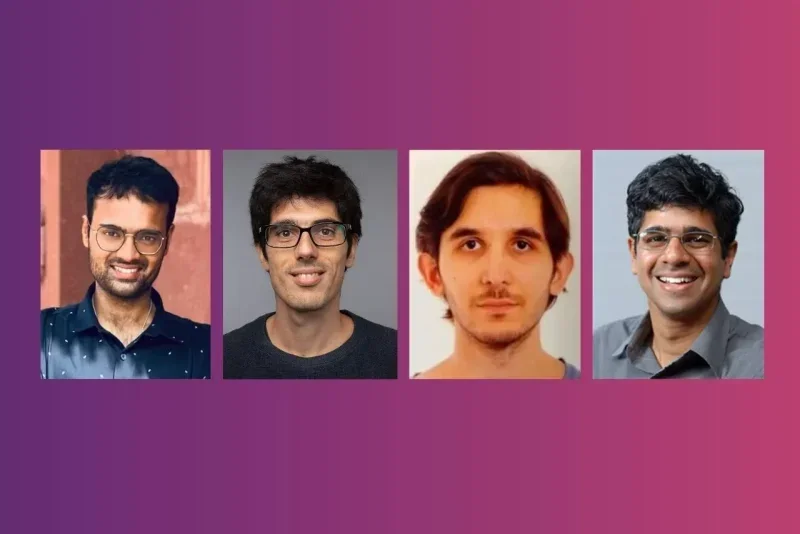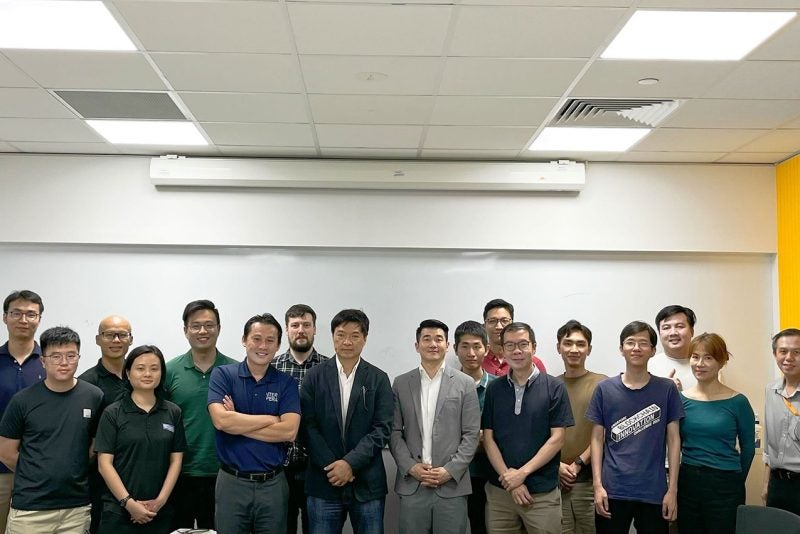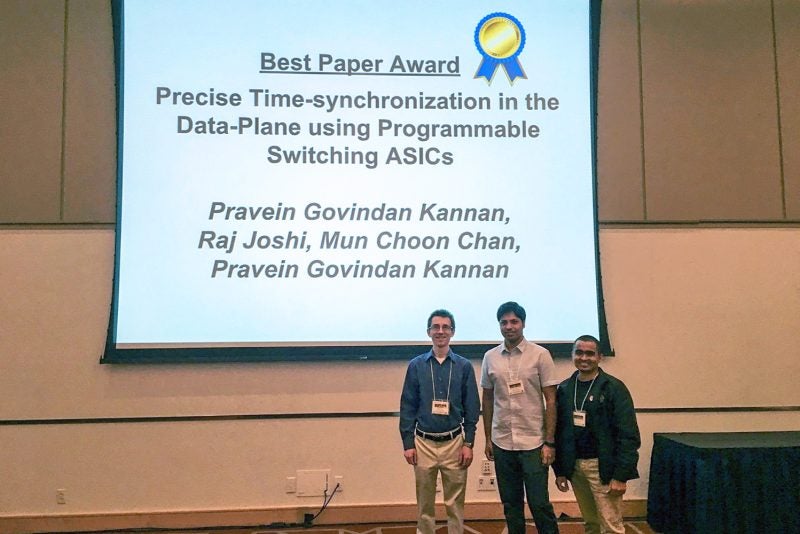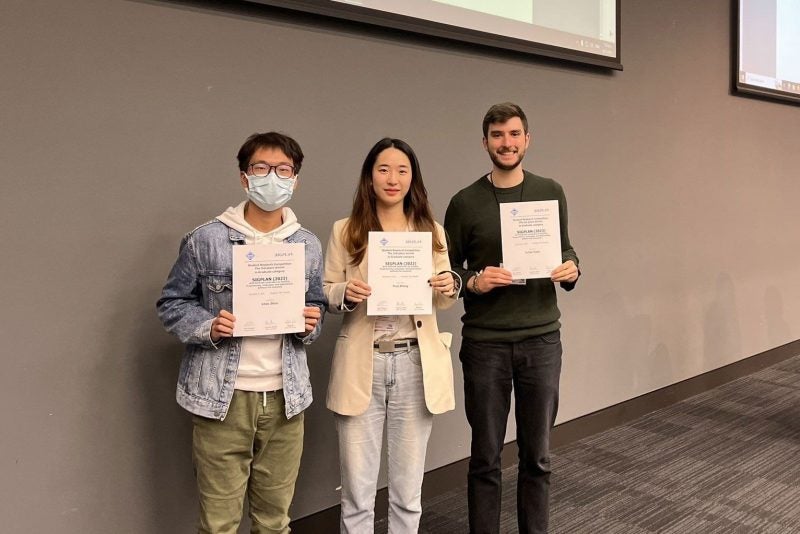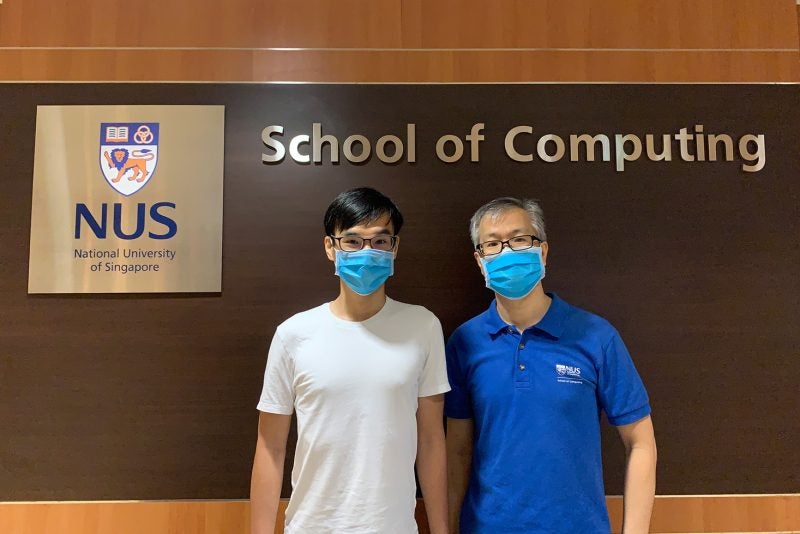Picture a computing student, what do you see? At NUS Computing, where some of the brightest minds converge, you are likely to encounter a diverse array of characters. Many of our students defy expectations with multidimensional interests and passions. Our students are innovators, problem-solvers, and visionaries, driven by a love of technology and a desire to have a meaningful impact on the world.
In the second instalment of our “Conversation With” series, we speak with Associate Professor Gary Tan, Vice Dean of the Student Life Office.
Gary is a seasoned member of the NUS Computing community, recognised by students and alumni alike for his friendly and cheerful demeanour. Gary has had a front seat to the evolution of student life at NUS Computing from its humble beginnings to the rich school life brimming with culture that is visible today.
❈❈❈
Hello Gary, thank you for speaking with us today. Can you please introduce yourself and your role at NUS Computing?
Certainly, thanks for having me. I am Gary Tan, an Associate Professor and Vice Dean of Student Life. I’ve been in this position since the Student Life Office was established in 2014. I also serve as the Master at the College of Alice & Peter Tan, a residential college at NUS, where I engage with students living on campus.
What was student life like a decade ago at NUS Computing?
Student life was quite different back in 2014. The total student population for Computing Undergraduate students was 1998 in 2014 and 3498 in 2023—a 194% increase! This drastic increase can be seen in our postgraduate students too. The total student population for Computing Postgraduate students was 516 in 2014 and 1613 in 2023—a 213% increase!
Besides enrolment rates, the indicative grade profile has also risen significantly over the years. Just look at the 10th percentile. From a score of BBB/C in 2014 to a perfect score of AAA/A now, it has become extremely competitive to study at NUS Computing.
Extra-curricular activities and the sense of community were also less developed. Groups like the Computing Club existed but it was challenging to get students involved and build a strong shared identity among the Computing students. I believe that was partly because Computing was not the faculty of choice for many of them.
The transformation of the school can be seen through our physical buildings as well. Back then, we only had COM1 and COM2. Now, we have expanded to two new buildings in the last two years: COM3 and COM4 (our latest baby on the block) to cope with a ballooning student body. Even then, our school is still growing. I don’t doubt that space will still be an issue in the future.
With a larger student population, there are many more peers to interact and connect with. However, it has also made relationships between students and faculty more impersonal with larger class sizes. More intense competition for grades and projects has added to students’ academic stress as well.
Perhaps due to the tremendous growth in student population at NUS Computing, some individual students may paradoxically feel more isolated due to a sense of anonymity, which makes it more difficult for students struggling with non-academic issues to speak up and access the support they need.
Growth has been tremendous but creating a strong sense of community and connection among students remains an important goal for NUS Computing.
Did the formation of the Student Life Office help establish a vibrant culture at NUS Computing? How has student life evolved since then?
The Student Life Office has played an important role in cultivating a thriving student community within NUS Computing since the day it opened its doors.
The Student Life Office does this by working closely with student leaders and student groups. As a result, many more students are now involved in the many student interest groups, such as the NUS Hackers, NUS Greyhats, Developer Student Clubs NUS, NUS Fintech Society, NUS Games Development Group, StartIT (a technopreneurship society), and the new Women in Tech group.
All these groups have flourished with support from the Office.
But there is still a lot of potential for even greater student involvement and enrichment. There are many benefits to participating in student life through clubs and other activities. For starters, active participation allows students to connect with peers who share similar interests. It also allows students to explore passions beyond academics all the while developing important soft skills.
Besides student interest groups, our students are also active participants in inter-faculty games. They are truly formidable! We finished in first and third place in 2022 and 2023, respectively.
All in all, I encourage all students to consider starting new clubs centred around hobbies, causes, or industries that they’re passionate about. There are almost endless opportunities for engagement. The Student Life Office is here to support all student who wants to start a club or society. Just come by and see us.
What are your day-to-day responsibilities as Vice Dean of Student Life?
As Vice Dean, my main responsibilities involve overseeing non-academic areas of student life, such as the student interest groups, student welfare, and the general well-being of students. I am also responsible for disciplinary matters and ensuring students know they can come to my office if they have any well-being issues or concerns.
My portfolio extends beyond current students as well. This includes engaging alumni, organising homecomings, alumni events, and alumni awards—one of which is the Outstanding Computing Alumni Awards that my team is organising now.
The Student Life Office works closely with the NUS Development Office for fundraising and development efforts. Donations we receive go towards enhancing students’ university experience through financial support programmes, upgrading student facilities, and funding student activities and organisations.
For example, donations help provide scholarships and bursaries, refurbish recreation centres, and support student clubs and societies. This allows more students to fully engage in campus life which benefits their overall mental health and well-being during their time at NUS Computing. Recently we received a generous donation from Mrs Lee Choon Guan Trust Fund to set up the Centre for Computing for Social Good and Philanthropy. This fund will go to cultivate students’ interest and abilities to advance social good as well as support our long-term goal of grooming socially responsible tech leaders. We welcome donations to support scholarships and bursaries for our students. Interested donors can visit our secure online giving page or email giving@comp.nus.edu.sg.
How does the Student Life Office engage with students?
The Student Life Office works closely with student leaders and groups through a “students-as-partners” approach.
For example, we work closely with the Computing Club’s management committee and various student interest groups to plan major annual events such as homecomings, welcome teas, and Computing Day celebrations.
One successful partnership project has been Project Mentorship with NUS Hackers. In this programme, senior students serve as mentors to their junior peers. We intend to expand this initiative by involving staff, alumni, and a wider range of students in a comprehensive mentoring network.
Recently, the Student Life Office organised a Puzzle Hunt that was very well received by students and staff. Participants formed over 40 student teams and 10 staff teams to explore 20 locations across the four Computing buildings—COM1, COM2, COM3 and COM4. Teams had to visit each spot to find clues and solve puzzles to locate the secret finishing point.
This light-hearted scavenger hunt provided a relaxing wellness activity for Computing students while familiarising them with the various Computing facilities on campus. Both the participating numbers and positive feedback suggest it achieved its goals of engaging the community through an enjoyable shared experience.
What are some of the challenges that the Student Life Office is facing? Can you tell us more about the issues that students are facing such as their mental health?
There has been a tremendous increase in Computing student intake, driven by growing interest in areas like AI, analytics and fintech. While all this interest is creating opportunities for students, many enrol without fully understanding what Computing is about or even if it suits them. As a result, some struggle to keep up academically. This is where the Student Life Office steps in.
Often, our students were high achievers at their previous schools but with the high calibre of students at NUS Computing, many of them experience new levels of stress and feel they are “underperforming”. Acknowledging and helping them alleviate this pressure is a top priority for my office.
As mentioned earlier, we are dealing with a growing number of mental health issues. The sheer size of the student body may result in issues or problems staying under the surface because students might be more reluctant to seek support.
Students need to know that Student Life provides a safe environment where any issue can be discussed confidentially. Our goal is to ensure every student feels supported and taken care of. If you are facing any difficulties, I encourage you to come see us so we can work to get you the assistance needed.
How does the Student Life Office cope with the academic challenges and mental wellness challenges students face at NUS?
The Student Life Office is committed to helping our students alleviate mental stress and navigate student life at NUS Computing.
We offer a range of wellness resources and services for students such as a helpline and support staff. Distressed students can reach out to us at SoCFamily@comp.nus.edu.sg. If they need a listening ear urgently, they can contact our Student Support Manager.
We also regularly host wellness programmes and workshops to help students develop coping mechanisms to manage stress while fostering a community where they feel comfortable seeking help when they need it.
A piece of good news—we are going to have our very own PitStop, a place where students can take a breather amidst the hustle and bustle of academic life. Students can relax, play games, talk to peer supporters, and more. Stay tuned for its launch which is happening very soon!
In fact, the secret location at the end of the above-mentioned Puzzle Hunt was the PitStop location, so it was a way for students to be aware of its location prior to its launch.
Can you tell us more about gender diversity at NUS Computing? Is this a big challenge?
One of our biggest challenges is a lack of gender diversity. Only about 21% of students in our Computing programmes, including Computer Engineering, are female. This is a disappointing number as so many prospective outstanding female students have the potential to excel just like their peers at any global Computing school around the world!
While equitable access to educational opportunities is important, gender diversity is a challenge we want to address because it benefits innovation and the quality of student experiences.
Research shows that diversity of perspectives and life experiences drives better problem-solving and more creative thinking. In an area as complex and wide-reaching as Computing, drawing from a wide range of backgrounds and viewpoints is critical to designing technologies that meet the needs of all users. As our field continues to shape virtually every industry, we have a responsibility to consider how gender may influence the development and use of our digital products and services.
I believe the main barrier is an outdated perception of Computing as a “nerdy” field not well-suited to females. We want to dispel this misconception and invite more female students to join us in building the technologies of tomorrow and making a positive impact for generations to come.
We look forward to welcoming all prospective students, including female students interested in technology careers, to our upcoming Open House on March 9.

